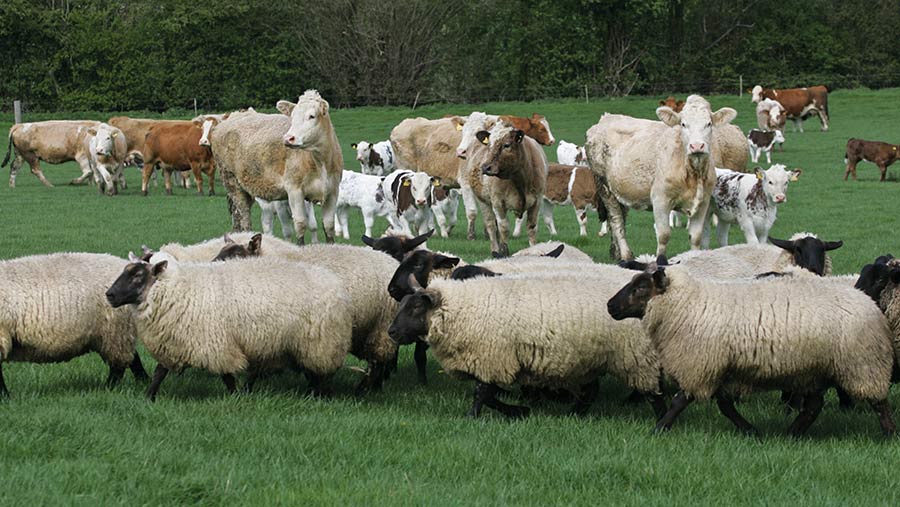Business Clinic: What are the tax issues on selling stock?
 © Tim Scrivener
© Tim Scrivener Whether you have a legal, tax, insurance, management or land issue, Farmers Weekly’s Business Clinic experts can help.
Here, Andrew Robinson, partner and head of agriculture, Armstrong Watson advises on stock valuation on disposal of herd or flock.
Q. My wife and I have traded for many years in partnership and we are considering making things easier by selling our cattle and sheep.
We will then take in stock from other farmers, or grant short-term grazing licences over the land. What are the tax consequences of doing this?
A. This is a big decision for any farming family, but is common way to reduce the workload, particularly at calving and lambing times.
To answer the question we have to start by looking at the way the livestock, and particularly the breeding animals, are treated in the accounts.
Normally, the profit on selling animals, being the difference between selling price and stock value, is subject to income tax.
Where a herd or flock consists mainly of home-bred animals, there can be a large difference between the selling price and accounts value of animals.
See also: Business Clinic: is succession a key consideration when developing land?
However, farming businesses can elect for breeding animals to be accounted for on herd basis, which can both simplify annual stock valuations and reduce tax liabilities on permanent reductions in numbers.
The key points regarding herd basis are as follows:
- An election has to be made within two years of the end of the accounting period in which the herd or flock is first kept.
- In the case of a partnership, a further opportunity to elect arises when there is a change in the partnership, either a partner joining or leaving.
- In general, all mature breeding animals are included in a herd basis election, but this rule is relaxed for hefted flocks where immature replacements can be included.
- Once an election has been made, the animals in the herd or flock are valued for tax purposes at the cost of the original animals, rather than the cost of the replacement animals. As mentioned above, this simplifies the annual valuation process.
- Where all or a significant part of a herd or flock is sold, the profit is tax-free, which for a herd or flock kept for many years, can be a significant sum.
- If the same partnership re-purchases a herd or flock within five years of the disposal, part or all of the herd basis profit becomes taxable.
The sale proceeds from selling non-herd basis animals will be taxable in the normal way, and will be included as part of taxable profit. This may result in a higher profit than normal.
However, you intend to continue the farming business by issuing grazing licences over your land, and provided you are performing acts of husbandry on the land, you will still be treated as running a farming business.
One advantage of this is that you will be able to claim farmers’ averaging to avoid paying higher rates of income tax on the dispersal proceeds.
Other benefits of continuing to be treated as a trading farming business, include being able to remain VAT registered and reclaim VAT on expenses, and inheritance tax benefits on your farmhouse and buildings.
Do you have a question for the panel?
Outline your legal, tax, finance, insurance or farm management question in no more than 350 words and Farmers Weekly will put it to a member of the panel. Please give as much information as possible.
Email your question to FW-Businessclinic@markallengroup.com using the subject line “Business Clinic”.
